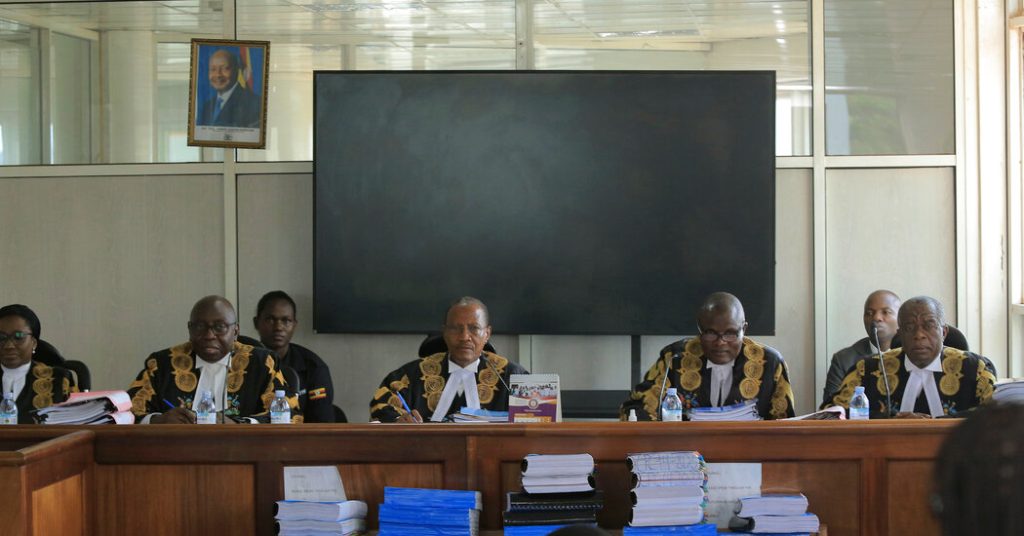Uganda’s Constitutional Court recently upheld a controversial anti-gay law that President Museveni signed last year, which calls for life imprisonment for those engaging in gay sex. This law has faced international backlash, with the World Bank suspending funding and the United States imposing sanctions on Ugandan officials. However, the law remains popular in Uganda, where religious and political leaders frequently condemn homosexuality. The repercussions of this law will be closely watched in other African countries where anti-gay sentiment is on the rise, including Kenya, Namibia, Tanzania, and South Sudan.
The law in Uganda includes a provision for the death penalty for “aggravated homosexuality,” defined as same-sex relations with minors or disabled individuals, those carried out under threat, or while someone is unconscious. Human rights activists have condemned the law, fearing that it will inspire similar legislation in other African nations. The United Nations and various human rights groups have criticized the law for conflicting with Uganda’s Constitution and potentially leading to harassment and intimidation of the LGBTQ population. Activists plan to appeal the Constitutional Court’s decision to the Supreme Court.
The law was introduced in response to what lawmakers perceived as a growing threat of homosexuality in Uganda, with claims of plans to promote and recruit schoolchildren into homosexuality. Lawmakers from both Muslim and Christian faiths argue that homosexuality is a foreign influence, and rallies were held in support of the legislation before it was passed. The rapid passage of the law left little room for public participation, leading to legal challenges from activists, academics, and human rights lawyers on the grounds of constitutionality and international treaty violations.
Since the law’s passage, LGBTQ Ugandans have faced increased violence and harassment, with hundreds of rights violations documented by human rights groups. Reports of arrests, forced anal examinations, evictions, and physical assaults have forced many to flee to neighboring countries for safety. The law has also had negative implications for medical access, particularly H.I.V. testing, prevention, and treatment for gay individuals, further exacerbating the human rights crisis in Uganda. The economic repercussions of the law have also been severe, with the United States imposing visa restrictions and business advisories on Uganda, and the World Bank suspending funding to the country.
President Museveni, while publicly defiant, is said to privately worry about Uganda’s international reputation and the economic impact of being labeled as an outcast due to the anti-gay law. The law has strained Uganda’s relationships with Western nations and driven away foreign travelers and investors. Despite the Constitutional Court’s decision to uphold the law, the fight for LGBTQ rights in Uganda continues, with activists challenging the legality of the legislation in the Supreme Court. The future implications of this law on Uganda and other African countries grappling with anti-gay sentiment remain uncertain.


